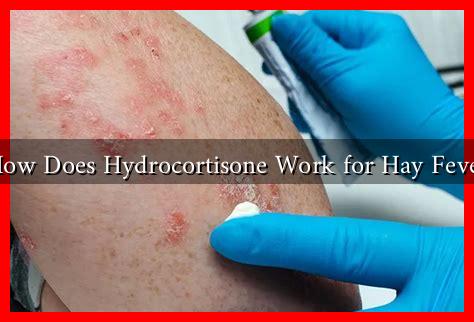-
Table of Contents
How Does Hydrocortisone Work for Hay Fever?
Hay fever, also known as allergic rhinitis, is a common condition that affects millions of people worldwide. Characterized by symptoms such as sneezing, runny nose, and itchy eyes, hay fever can significantly impact quality of life. One of the treatments available for managing these symptoms is hydrocortisone, a corticosteroid that helps reduce inflammation. In this article, we will explore how hydrocortisone works for hay fever, its effectiveness, and considerations for its use.
Understanding Hay Fever
Hay fever occurs when the immune system overreacts to allergens, such as pollen, dust mites, or pet dander. This overreaction leads to the release of histamines and other chemicals, causing inflammation in the nasal passages and eyes. Common symptoms include:
- Sneezing
- Itchy or watery eyes
- Runny or stuffy nose
- Postnasal drip
- Fatigue
According to the American Academy of Allergy, Asthma & Immunology, approximately 30% of adults and 40% of children in the United States suffer from hay fever, making it a prevalent health issue.
What is Hydrocortisone?
Hydrocortisone is a synthetic form of cortisol, a hormone produced by the adrenal glands. It is classified as a corticosteroid and is commonly used to treat various inflammatory conditions, including allergies, skin disorders, and autoimmune diseases. Hydrocortisone works by mimicking the effects of cortisol, which helps regulate inflammation and immune responses in the body.
Mechanism of Action
Hydrocortisone alleviates hay fever symptoms through several mechanisms:
- Anti-inflammatory Effects: Hydrocortisone reduces inflammation in the nasal passages and eyes by inhibiting the release of inflammatory mediators, such as cytokines and prostaglandins.
- Immune System Modulation: It helps modulate the immune response, decreasing the sensitivity of the immune system to allergens.
- Histamine Blockade: While hydrocortisone does not directly block histamine, its anti-inflammatory properties can reduce the overall allergic response, leading to decreased histamine release.
Forms of Hydrocortisone for Hay Fever
Hydrocortisone can be administered in various forms, including:
- Topical Creams: Used for localized allergic reactions on the skin.
- Nasal Sprays: Specifically designed for hay fever, these sprays deliver hydrocortisone directly to the nasal passages.
- Oral Tablets: In more severe cases, oral hydrocortisone may be prescribed.
Effectiveness and Case Studies
Research has shown that hydrocortisone can be effective in managing hay fever symptoms. A study published in the Journal of Allergy and Clinical Immunology found that patients using hydrocortisone nasal sprays experienced significant relief from nasal congestion and other symptoms compared to those using placebo sprays.
Another case study highlighted a patient with severe hay fever who was unresponsive to antihistamines. After switching to a hydrocortisone nasal spray, the patient reported a marked improvement in symptoms, allowing for better daily functioning.
Considerations and Side Effects
While hydrocortisone can be effective, it is essential to consider potential side effects, especially with long-term use. Common side effects may include:
- Dryness or irritation in the nasal passages
- Increased risk of infections
- Systemic effects if used excessively, such as weight gain or mood changes
It is crucial to use hydrocortisone under the guidance of a healthcare professional to minimize risks and ensure proper dosage.
Conclusion
Hydrocortisone is a valuable tool in managing hay fever symptoms through its anti-inflammatory and immune-modulating properties. While it can provide significant relief for many individuals, it is essential to use it judiciously and under medical supervision. As hay fever continues to affect a large portion of the population, understanding treatment options like hydrocortisone can empower individuals to manage their symptoms effectively and improve their quality of life.


